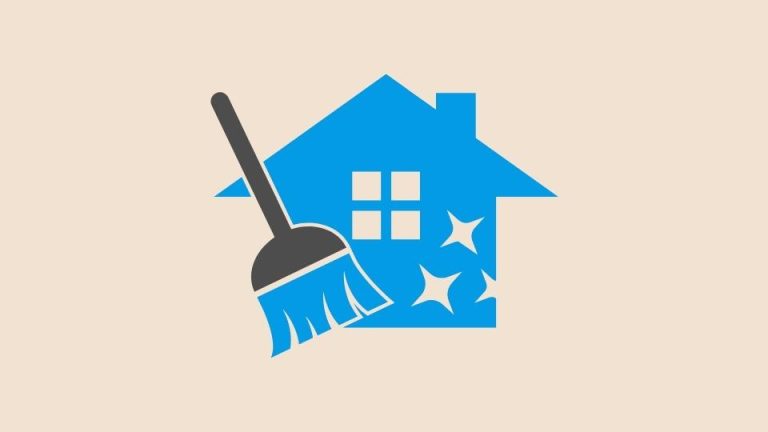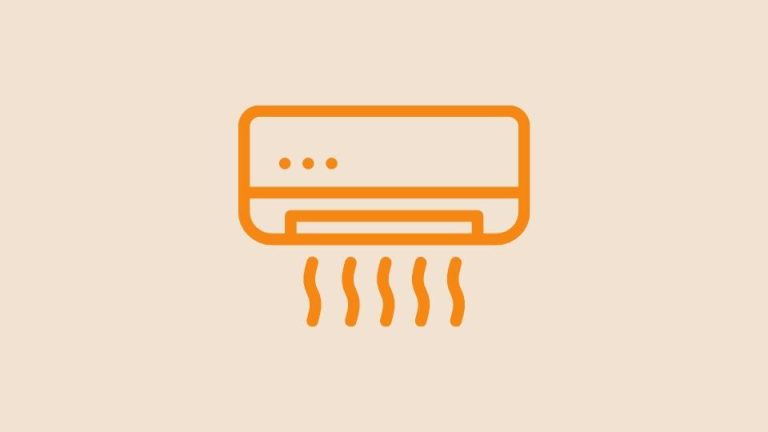Are Landlords Responsible for Pest Control in Florida?
Has it ever crossed your mind: “As a landlord in Florida, am I responsible for pest control in my rental property?” In the Sunshine State, where warm climate is ideal for pests to thrive, this question becomes even more significant. This article will help you understand your obligations as a landlord for pest control in Florida. We’ll take you through relevant laws and regulations, possible exemptions, typical pests to look out for, as well as guidelines to follow and potential consequences for neglecting these duties. Let’s dive in!
“In Florida, landlords have a legal responsibility to deliver and maintain a rental property free from pests and vermin. Understanding the nuances of these responsibilities is crucial to avoiding potential legal pitfalls.”
Here are the key points this article will cover:
- Specific laws and regulations concerning landlord responsibilities for pest control in Florida.
- Exemptions or exceptions to the landlord’s responsibility for pest control.
- Types of pests that are typically the landlord’s responsibility to control.
- Specific requirements or guidelines for landlords to follow when dealing with pest control.
- Potential consequences or penalties for landlords who fail to fulfill their pest control responsibilities.
Stay tuned, as we delve into each of these subjects in detail.
What are the specific laws and regulations regarding landlord responsibilities for pest control in Florida?
According to Florida statutes, landlords are required to maintain their rental properties in a condition that meets basic health and safety standards. This includes taking care of any infestations by pests such as rodents, bed bugs, or termites. The pivotal law to reference here is Florida Statute 83.51(2)(a), which stipulates that landlords have the responsibility of ensuring their property remains habitable. Correspondingly, keeping a property free from pests contributes to its overall habitability.
“The landlord at all times during the tenancy shall…Exterminate for…pests…” – Florida Statute 83.51(2)(a)
There’s also a generally tacit agreement involved in most leases that landlords must take action to handle pest problems. It’s called the “implied warranty of habitability” and by not addressing any pest control issues in time, landlords may be found violating this implied warranty.
Moreover, specific local ordinances in different areas of Florida might further specify landlord responsibilities in pest control, like the ones set out by the Department of Health in Florida. These local ordinances should always be reviewed by both property owners and tenants.
There are, however, some exceptions, which are covered in the next section.
Are there any exemptions or exceptions to the landlord’s responsibility for pest control in Florida?
In Florida, the responsibility of pest control generally falls on the shoulders of the landlord, but there are certain circumstances where this might not be the case. Often, these exceptions are outlined in the lease agreement itself.
Transfer of responsibility through lease agreement: Sometimes, a lease agreement may specify that the tenant is responsible for pest control. This can be a point of negotiation between the landlord and tenant before signing the contract.
Infestation caused by tenant’s activity or neglect: If the landlord is able to prove that the pests were brought into the property due to the tenant’s actions, misuse, or neglect, then the responsibility for pest control may fall on the tenant. Such actions might include leaving food out, improper waste disposal, or bringing infested furniture into the property.
Single-family homes and duplexes: Florida law exempts landlords of single-family homes and duplexes from being responsible for pest control unless specific terms are included in the lease agreement saying otherwise.
Insect infestations due to natural disasters: If pests invade the property due to a natural disaster, like a hurricane or flood that disturbed their natural habitat, this is often considered an “act of God”. In such cases, responsibility may not necessarily fall on the landlord, unless specified otherwise in the lease agreement.
Remember, the specifics of each lease agreement can vary, and exceptions can come into play based on agreed-upon terms or individual situations. This is why it is crucial to thoroughly review your lease agreement before signing. When in doubt, consult with a legal expert to understand your rights and responsibilities as they pertain to pest control.
What types of pests are typically the responsibility of the landlord to control in Florida?
In the charming, sunshine-laden state of Florida, diverse species of pests are as common as the days are long. Yet, as a renter, you might be wondering which of these critters falls under your landlord’s responsibility to control. Let’s dive into the specifics.
Essentially, in Florida, landlords are generally responsible for maintaining the rental property in a safe, habitable condition, which includes the eradication of pests that could pose a threat to the property or to a tenant’s health. These often include but not limited to:
- Cockroaches: Florida’s humid climate is a perfect breeding ground for these resilient creatures, making it a recuring pest.
- Rats and Mice: Sharing living spaces with rodents isn’t just disturbing, but it can lead to health risks and property damages due to their gnawing habits.
- Termites: Known for their destructive nature, termites damage property structures, hence considered a landlord’s responsibility.
- Bed Bugs: Although usually brought by tenants, the burden falls upon landlords to exterminate if found upon move-in or if they are present in multiple units.
- Ants: While ants are generally less destructive, some species such as the carpenter ant can cause property damage.
However, other less traditional pests are also the liability of the landlord, including:
- Raccoons, opossums, and other wildlife: If these creatures start to become a regular and problematic feature at the property, the landlord should organize their removal.
- Venomous Spider: Spiders are typically managed by the tenant, but if the dwelling is infested with a harmful species like the brown recluse or black widow, it becomes the landlord’s responsibility.
Overall, it’s key to remember that landlords need to maintain a pest-free environment, ensuring the space is comfortable, habitable, and safe. However, if pests appear due to the residents’ actions, behavior, or negligence, responsibility may shift to the tenant.
Are there any specific requirements or guidelines for landlords to follow when dealing with pest control in Florida?
Indeed, there are designated guidelines that landlords in Florida need to heed when it comes to managing pest control. Each approach requires a degree of caution and responsibility in order to make sure that tenants live comfortably and safely.
Working with Professional Pest Control Companies
Landlords are generally encouraged to engage professional exterminators for dispensing pest control services. These experts not only deliver more efficient solutions but also follow strict safety protocols to ensure the health of tenants is not jeopardized. In fact, Florida Statute Chapter 482 necessitates pest control companies to obtain a license, thereby ensuring they follow industry-standard procedures.
Proactive Measures
Landlords must adopt a proactive approach to pest control. This includes performing routine checks to identify potential infestation sources and taking timely action. For instance, a landlord might need to repair water leaks, clear clutter, or seal cracks that could house pests.
Documentation
A prudent practice for landlords to follow is to document all their pest control efforts. Keeping records of inspection reports, exterminator visits, preventive measures and any tenant communication relating to pests can demonstrate the landlord’s active involvement in maintaining pest-free environments. In cases of legal disputes, these documents might serve as crucial pieces of evidence.
Communicating with Tenants
Communication with tenants serves as an essential aspect of managing pest control. Landlords should educate tenants about their role in pest prevention and management, and routinely inform them about any major pest control measures being undertaken in the property. Landlords should also respond promptly and appropriately to any pest-related complaints lodged by the tenants.
Suitable Treatment Timing
The timing of pest control treatments is also significant. Landlords must schedule pest control activities in a manner that causes minimal disturbance to tenants. Additionally, landlords must notify their tenants of any planned pest control treatments ahead of time, as per Florida Statute 83.56(2).
Use of Approved Pesticides
Lastly, when resorting to using pesticides, landlords need to ensure these are approved by the Environmental Protection Agency (EPA) and used as per the prescribed instructions to avoid any unfavorable health effects. Pesticides should only be used as a last resort when all other pest prevention measures have failed.
What are the potential consequences or penalties for landlords who fail to fulfill their pest control responsibilities in Florida?
Landlords who do not comply with Florida’s pest control laws may face serious repercussions. The consequences vary depending on the situation but typically involve financial penalties or legal action.
Legal Implications: If a landlord fails to properly maintain a pest-free environment, the tenant may seek legal recourse. This situation is often viewed as a clear violation of the Habitability Law and Lease Agreement where the landlord is responsible for providing a safe, clean, and habitable place for residents.
“Florida Statute 83.51 states that landlords have an obligation to maintain their property and to provide for extermination of certain pests.”
– Legal Services of Greater Miami
Tenants may have the right to withhold rent until the issue has been addressed. In severe cases, they might be able to break their lease without suffering a penalty. If the issue escalates to court, the landlord might be forced to pay for damages, legal costs, or even be confronted with potential health and safety violations.
Financial Consequences: Aside from potential legal fees, neglecting pest control can result in significant financial strain for landlords. In some cases, a court may order landlords to refund a portion of the rent paid while the property was infested. Large infestations might require extensive and pricey treatments, and the landlord might also have to cover relocation costs for displaced tenants.
A landlord’s reputation could also suffer, potentially leading to lower occupancy rates and loss of income. Additionally, landlords of infested properties might find it more difficult to secure insurance coverage or they could face higher premium rates.
Ignoring pest control responsibilities isn’t just harmful for tenants, but it can also prove costly and stressful for the landlord. To avoid legal action and maintain a successful property management business, it’s vital that landlords in Florida take these responsibilities seriously.
Conclusion
In conclusion, the responsibilities of landlords regarding pest control in Florida are clearly defined by the state laws. It’s crucial to note that these responsibilities can’t be overlooked as it ensures the proper health and safety of the tenants. The state of Florida places due emphasis on maintaining a pest-free environment, deeming it necessary for a healthy living space.
Landlords are primarily responsible for ensuring the infestation is addressed promptly and through appropriate actions. They are legally obliged to hire a professional pest control service if the situation demands so. However, a tenant’s negligence or inappropriate behavior resulting in pest infestation may move some accountability onto them.
Remember, vigilance is the key to avoid infestations in the first place. Regular maintenance checks, timely trash disposal, and immediate action on any signs of pests will help in maintaining the safety and comfort of the tenants.
Lastly, it’s important to not neglect the consequences of failing to adhere to pest control responsibilities by landlords. Penalties, legal actions, and possible reputation damage are some of the things a landlord in Florida may face for non-compliance with the pest control regulations.
Consider this a friendly reminder: maintain open communication with your tenants about any pest-related issues and handle them swiftly and efficiently to assure a harmonious living environment for all parties involved.
FAQs
Is a landlord always responsible for pest control in Florida?
No, it’s not always the landlord’s responsibility. For instance, if the pest infestation is due to the tenant’s lifestyle or negligence, the tenant could be held responsible for pest control. The arrangement can also be detailed in the lease agreement.
What happens if a landlord refuses to carry out pest control duties?
If a landlord fails to meet their pest control obligations, the tenant may have legal remedies available. They could report the issue to local health departments, withhold rent, or even sue for damages in some instances.
Are bed bugs the landlord’s responsibility in Florida?
Typically, landlords are responsible for exterminating bed bugs unless it’s proven that the tenant introduced them through neglect or improper behavior.
Do tenants have to pay for pest control in Florida?
Unless the lease agreement specifies otherwise or the tenant is at fault for the infestation, tenants generally do not have to pay for pest control.
What steps should landlords take to avoid pest infestations?
Landlords should maintain a clean and safe property, arrange regular pest inspections, respond promptly to complaints, and educate tenants about proper sanitation practices to avoid pest problems.
Can a tenant break a lease due to pest infestation in Florida?
In some cases, a persisting pest problem that’s not addressed by the landlord can be viewed as a breach of the warranty of habitability, allowing the tenant to break the lease. Legal advice should be sought before taking such action.
How quickly should a landlord respond to a pest infestation?
While there’s no legally defined timeline, landlords are advised to respond to pest complaints promptly to limit the spread of infestation, mitigate health risks, and minimize potential damages.
What information pertaining to pest control should be included in the lease agreement?
The lease agreement should outline who is responsible for pest control, the steps taken to prevent pest infestation, what happens if pests are found, and the consequences of non-compliance with pest control guidelines.
Does a landlord have to inform potential tenants about previous pest infestations?
Under Florida statutes, landlords do not have a legal requirement to inform potential tenants about past pest problems unless the issue persists at the time of leasing.






